Here’s How Early MATCH List Removal Works
January 26, 2024
Understanding The Mastercard MATCH List: Violation of Standards
April 17, 2024Why Has My Merchant Account Been Terminated?
Did you just find out that your bank has closed your merchant account? Having a merchant account that has been terminated can carry some serious and long-lasting consequences. Your business may change forever, or you could very well go out of business altogether. The good news is that if you act fast, you can get back up and running and put this in the rearview mirror. Keep reading to learn more about why your merchant account has been terminated, what the MATCH List is, and how to get back to business as usual as soon as possible.
You Are On The MATCH List
If your acquiring bank has terminated your merchant account, chances are pretty good that you have been placed on the MATCH List. This is an exclusive list that you do not want to be on. It contains a wealth of information about you, your business associates, and your business in general, including names, phone numbers, addresses, and more.
The list is intentionally comprehensive so that you do not try to open a new merchant account or start a business in a new name. In other words: No loopholes here.
What is the MATCH List?
Mastercard Alert To Control High-risk Merchants (MATCH) lets an acquiring partner look up whether another acquiring partner has terminated a merchant in the past and the reason for said termination to help with an onboarding decision.
Acquiring banks and partners have the ability to:
- Add merchants who have been terminated for specific reasons to MATCH
- Designate regions/countries and use multiple fields to determine possible matches
- Add and search for information about up to five principal owners per merchant inquiry and addition
- Inquire about a merchant to find out if they have been previously added to MATCH
- Receive retroactive alerts if a merchant you previously inquired about is added to MATCH within 360 days of the initial inquiry
Adding a terminated merchant to the MATCH List is very simple for them to do. It is a very short and easy process, which looks like this:
- Step 1: Within 5 days of the decision to terminate a merchant that meets one of the MATCH reasons codes, the acquirer submits an additional record to the MATCH API that includes information on the merchant and associated principal owners and the applicable reason code
- Step 2: The record is added to MATCH and made available to all other acquirers in real-time
- Step 3: MATCH returns a confirmation to the acquirer that the merchant was successfully added and provides a MATCH Reference Number
Why Am I On The MATCH List?
You have been placed on the MATCH List for one of thirteen reasons. These include:
- Account Data Compromise
- Common Point of Purchase (CPP)
- Laundering
- Excessive Chargebacks
- Excessive Fraud
- Fraud Conviction
- Mastercard Questionable Merchant Audit Program
- Bankruptcy/Liquidation/Insolvency
- Violation of Standards
- Merchant Collusion
- PCI Data Security Standard Noncompliance
- Illegal Transactions
- Identity Theft
The most common of these reason codes include excessive fraud, excessive chargebacks, and PCI Data Security Standard Noncompliance. This means that you may unintentionally be on the MATCH List, with absolutely no fault of your own.
How Do I Get Off The MATCH List?
Getting off the MATCH List is a slippery slope. You may not even know you are on it for a long period of time, and Mastercard has pretty strict rules. The acquiring bank usually doesn’t even inform someone that they’ve been placed on the MATCH List, and they have no obligation to speak with you to work it out.
There are a few ways to get off of the MATCH List, including:
- Just wait. Everyone who gets placed on the MATCH List “ages out” after five years. After this period, there will be no record of you being on the list anymore, and you can go back to business as usual. However, this method is extremely difficult to survive, and most businesses fail.
- Talk to your bank. In rare cases that are easy to prove, you can call your bank and try to talk to them about your situation. If you believe you have been placed on the MATCH List by error and you have concrete proof, you may have a shot at being removed from the MATCH List. However, this is very rare as the bank has no obligation to speak with you about this matter.
- Get professional, legal help. Some law firms, such as TFM Law, specialize in merchant account law. We know all of the ins and outs of this situation and can get you off the list ASAP. We’re here to talk and help guide you off of the MATCH List.
How Long Does It Take To Get My Merchant Account Back?
Depending on how this situation is handled, there are different time frames in which you can get your merchant account back. If you keep plenty of statements and records and can prove rather easily that you are on the MATCH List by mistake, you may be able to get off the MATCH List quickly.
If you cannot do this and do not seek professional legal help, you may have to wait the full five-year period until your name and your business’s name age off the list. If you seek legal help to get off the MATCH List, we work efficiently to get you off as quickly as possible.
What Do I Do Now?
Now that you have a terminated merchant account and are on the blacklist, it can be difficult to understand what to do next. Waiting the five-year waiting period is unrealistic for most businesses, but the good news is that you have options during this time.
Become a High-Risk Merchant
One of your options is to become a high-risk merchant. High-risk merchant processors exist for many reasons. One is because some businesses are inherently high risk, such as crypto companies, smoke shops, adult companies, some subscription services, and more.
The problem with becoming a high-risk merchant and using a high-risk processor is that you will pay for it. They come along with very high fees and lengthy contracts. Your profits will be eaten, and you may be locked into a contract that you can’t get out of even if you get off the MATCH List early.
Accept Other Forms of Payment
Another option is to accept other forms of payment for the time being until you can sort out your situation. This means only accepting cash or trade, which can be difficult to convince customers to do. Your reputation will take a hit, and you may drive away a lot of business this way. Most people do not carry cash anymore, which makes this method difficult to sustain.
Get Your Merchant Account Back with TFM Law
Stop trying to do this on your own and get professional legal help with TFM Law.
If you have found yourself on the Match List, we can help you. The Law Offices of Theodore Monroe focuses on litigation and counseling in payments, credit card processing, e-commerce, direct response marketing, and Federal Trade Commission enforcement. Last year, the firm got 100% of the people who came to us off the MATCH list.
Theodore F. Monroe, Founder of TFM Law, has successfully:
- Represented merchants recovering funds from processors
- Structured processing relationships to comply with Card Brand requirements
- Drafted and negotiated contracts involving payment facilitators and ISOs
- Represented continuity merchants in compliance and litigation issues
- Fought for numerous companies in suits brought by the Federal Trade Commission and obtained excellent results for firms in the digital products, loan modification, government grant, and nutraceuticals industries
Before opening his firm, Mr. Monroe practiced law with Crosby, Heafey, Roach & May (now Reed Smith LLP) and Lewis, D’Amato, Brisbois & Bisgaard (now Lewis, Brisbois, Bisgaard & Smith), where he defended numerous accounting and law firms in professional liability actions, and insurance carriers in bad faith actions.
Before becoming a lawyer, Mr. Monroe worked as a forensic accountant at Coopers & Lybrand, which provided him a background in forensic accounting and financial analysis that is unique among litigators in Los Angeles. Mr. Monroe studied at Duke University Law School, achieved a BS with Honors, Accounting, University of Kentucky, and is a member of the California State Bar and the Kentucky State Bar.
Learn more at howtogetoffmatch.com!




